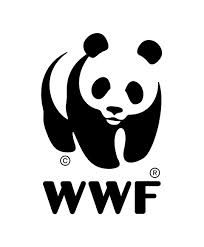World Wildlife Fund (WWF) Announces 2017 Russell E. Train Fellowship Winners
September 26, 2017 /3BL Media/ - Today, World Wildlife Fund (WWF) announced the recipients of the 2017 Russell E. Train Fellowship. Funded by WWF’s Russell E. Train Education for Nature Program (EFN), Train Fellows pursue their graduate degrees in conservation-related fields anywhere in the world and then return to their home countries to conduct their research.
This year’s recipients include 24 people from 11 countries, with areas of focus that range from researching the impacts of climate change to studying whale sharks in Peru. They were selected through a competitive, merit-based process from a pool of more than 150 applicants.
“EFN is building on its unique vision of conservation that is rooted in local leadership,” says Andrea Santy, Director of the Russell E. Train Education for Nature Program. “The sustainable protection of biodiverse and vulnerable landscapes in Africa, Asia, and Latin America requires conservation solutions that are championed by, and appropriate to, local cultures and communities. For more than 20 years, WWF has been investing in local conservation leaders with the passion, ability, and commitment to shape a brighter future for their countries. EFN continues to serve as one of the largest conservation fellowship programs in the world, and we are excited to welcome this year’s outstanding cohort of leaders to our network.”
EFN was started in 1994 to honor the late Russell E. Train, founder, president, and chairman of the board of WWF-US. EFN works every day to uphold Mr. Train’s vision of putting the ownership of natural resources into local hands. Each year, EFN supports committed conservationists from target countries by funding their advanced studies and field research. Applicants may apply to attend any university around the world, and must return to their home countries to work in conservation for at least two years after completing their degree. Over the past two decades, EFN has supported more than 2,500 individuals and organizations throughout Africa, Asia, and Latin America.
Every year, Train Fellowships align support with one of WWF’s six goals: wildlife, freshwater, oceans, forests, climate, and food. This year’s cohort focused on supporting research that:
- Protects key ecosystems in Mozambique and Myanmar
- Builds capacity for climate adaptation and resilience
- Increases the number of professionals working on sustainable food systems
- Supports the establishment and expansion of graduate level conservation programs in grantee’s home countries
The 2017 Train Fellows are:
- Jamen Mussa Ali (Mozambique): Master’s in Aquatic Tropical Ecology, University of Bremen, Germany
- Gabriela Barragan Altamirano (Ecuador): PhD in Forestry, University of British Columbia, Canada
- Nanda Aung (Myanmar): Master’s in Urban Environmental Management, Wageningen University, Netherlands
- Kyi Phyu Aung (Myanmar): Master’s in Agriculture and Forestry, University of British Colombia, Canada /University of Eastern Finland, Finland
- Thu Zar Aung (Myanmar): Master’s in Environmental Engineering, Hamburg University of Technology, Germany
- Win Maung Aye (Myanmar): PhD in Tropical Forest Ecology and Management, Kyoto University, Japan
- Robert Bagyenda (Uganda): PhD in Wetlands Resource Management and Climate Change, Mbarara University of Science and Technology, Uganda
- Aung Nyein Chan (Myanmar): Master’s in Fish, Wildlife, and Conservation Biology, Colorado State University, USA
- Gildo Amancio Chivale (Mozambique): Master’s in Forestry, Eduardo Mondlane University, Mozambique
- Prince Enganga Ekoto (DRC): Master’s in Innovations and Policies for Sustainable Food, Montpellier SupAgro, France
- Julia Maria Gorricho Escobar (Colombia): PhD in Environmental Governance, Albert-Ludwigs-University Freiburg, Germany
- Providence Omona Fale (DRC): Master’s in Environmental Management, Ecole Regional Post-Universitaire, DRC
- Juliana Velez Gomez (Colombia): PhD in Conservation Biology, University of Minnesota, USA
- Hernawati (Indonesia): PhD in Conservation Biology, Institute Pertanian Bogor, Indonesia
- Herbert Kasozi (Uganda): PhD in Wildlife Ecology and Management and Biometry and Ecological Modeling, Michigan State University, USA
- Myatthu Kyaw (Myanmar): Master’s in Environmental Engineering and Management, Asian Institute of Technology, Thailand
- Luc Mumbere Lango (DRC): Master’s in GIS for Spatial Planning, AgroParis Tech, France
- Michael Lukubwe (Namibia): PhD in Wildlife Ecology, Oregon State University, USA
- Halaze de Pedro Celestino Manhice (Mozambique): PhD in Climate Change and Sustainable Development, University of Lisbon, Portugal
- Handsen Mseteka (Zambia): Master’s in Agrarian, Food, and Environmental Studies at the International Institute of Social Studies of Erasmus University Rotterdam, Netherlands
- Faith Milkah Wakonyo Muniale (Kenya): PhD in Environmental Science, Masinde Muliro University of Science and Technology, Kenya
- Adriana Gonzalez Pestana (Peru): Master’s in Marine Science, James Cook University, Australia
- Claudia Angelica Veliz Rosas (Peru): PhD in Sciences, University of Toulouse 3 Paul Sabatier, France
- Alvaro Albino Vetina (Mozambique): Master’s in Coastal Ecosystems, Eduardo Mondlane University, Mozambique
In 2018, Train Fellowships will focus on:
- Conservation in the Galapagos: supporting local conservationists committed to preserving the natural resources and species of the Galapagos Islands.
- Strong university faculty: supporting the establishment and expansion of graduate level conservation programs in grantee’s home countries.
For more information about EFN or to apply for a 2018 Train Fellowship, visit: http://www.worldwildlife.org/projects/russell-e-train-fellowships

